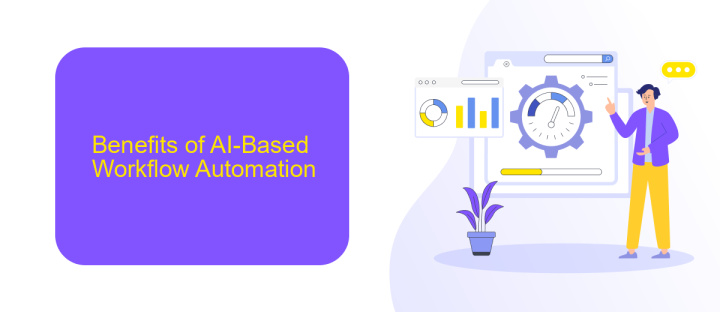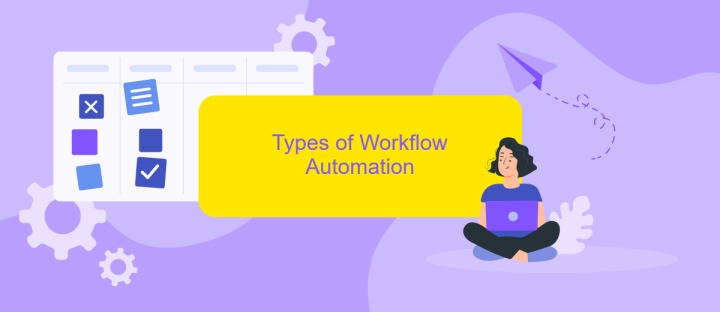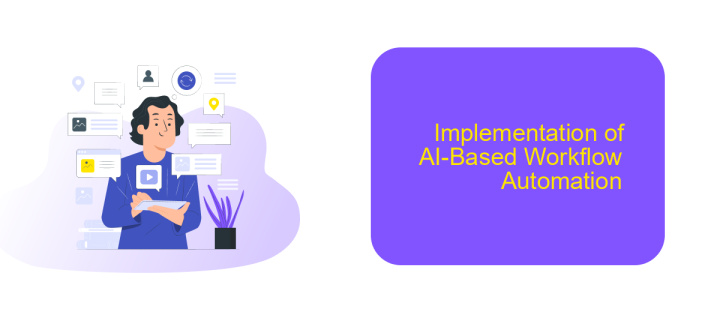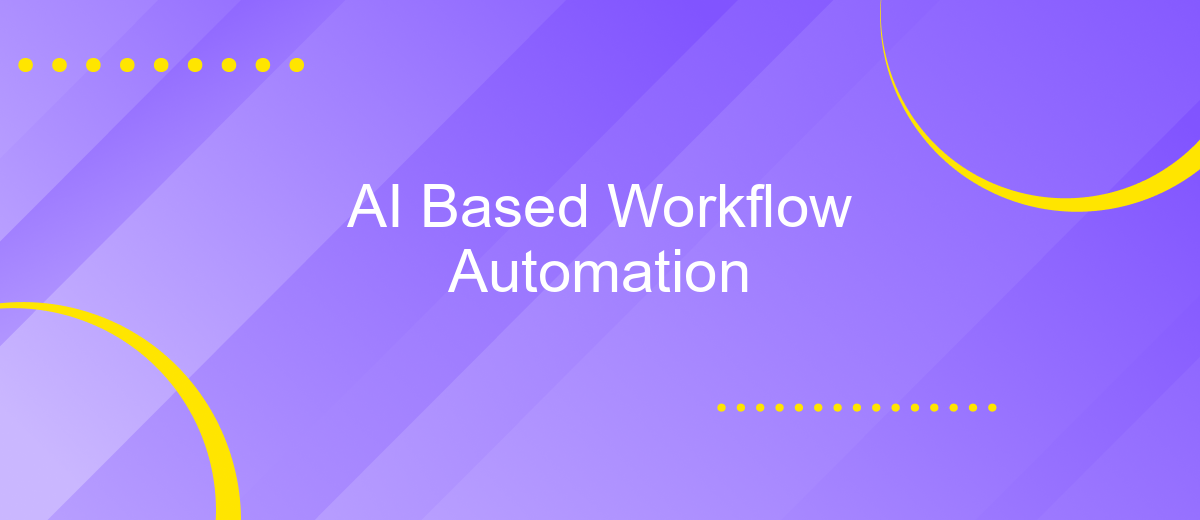AI Based Workflow Automation
AI-based workflow automation is revolutionizing the way businesses operate by streamlining processes and enhancing efficiency. By leveraging machine learning and artificial intelligence, companies can automate repetitive tasks, reduce human error, and free up valuable time for more strategic activities. This transformative technology is not only boosting productivity but also driving innovation across various industries.
Introduction
In today's fast-paced business environment, workflow automation powered by Artificial Intelligence (AI) is revolutionizing the way organizations operate. By automating repetitive tasks, companies can focus on more strategic and creative aspects of their business, driving growth and innovation. AI-based workflow automation not only enhances efficiency but also reduces errors, ensuring a more streamlined and reliable process.
- Improved productivity through task automation
- Enhanced accuracy and reduced human error
- Real-time data processing and analysis
- Seamless integration with existing systems
One of the key components of successful AI-based workflow automation is the seamless integration of various tools and services. Platforms like ApiX-Drive facilitate this by providing a user-friendly interface for connecting different applications and automating data flows between them. This ensures that businesses can leverage the full potential of their AI solutions without the need for extensive technical expertise.
Benefits of AI-Based Workflow Automation

AI-based workflow automation significantly enhances efficiency by reducing manual tasks and minimizing human error. By leveraging machine learning algorithms, AI can analyze vast amounts of data to identify patterns and optimize processes. This leads to faster decision-making and improved accuracy, which is crucial for maintaining a competitive edge in today's fast-paced business environment. Additionally, AI can work around the clock, ensuring that workflows continue uninterrupted and deadlines are met without the need for constant human oversight.
Another key benefit is the seamless integration of various tools and services through AI-driven platforms like ApiX-Drive. This service allows businesses to automate data transfer between different applications, streamlining operations and reducing the time spent on repetitive tasks. By utilizing ApiX-Drive, companies can easily set up integrations without requiring extensive technical knowledge, thus enabling teams to focus on more strategic initiatives. Overall, AI-based workflow automation not only boosts productivity but also fosters innovation by freeing up valuable resources.
Types of Workflow Automation

Workflow automation has revolutionized the way businesses operate, enhancing efficiency and reducing manual effort. There are several types of workflow automation, each catering to different organizational needs and processes.
- Rule-Based Automation: This type involves setting predefined rules and conditions to trigger specific actions. It is ideal for repetitive tasks such as data entry and email responses.
- Robotic Process Automation (RPA): RPA uses software robots to mimic human actions within digital systems. It is particularly useful for tasks that require interacting with multiple applications.
- Integration Automation: Tools like ApiX-Drive facilitate seamless integration between different software applications, enabling automatic data transfer and synchronization. This type is essential for maintaining consistency across various platforms.
- Artificial Intelligence (AI) Automation: AI-driven automation employs machine learning and natural language processing to handle complex tasks, such as customer service and predictive analytics.
Each type of workflow automation offers unique benefits, allowing organizations to choose the best fit for their specific requirements. By leveraging these automation types, businesses can streamline operations, improve accuracy, and achieve higher productivity.
Implementation of AI-Based Workflow Automation

Implementing AI-based workflow automation involves several critical steps to ensure seamless integration and optimal performance. Initially, it is essential to identify the specific processes that can benefit from automation. This requires a thorough analysis of current workflows to pinpoint areas where AI can enhance efficiency and reduce manual intervention.
Once the processes are identified, the next step is to select the appropriate AI tools and platforms. This selection should be based on the specific needs of the organization, considering factors such as compatibility with existing systems, scalability, and ease of use. ApiX-Drive, for instance, offers robust integration capabilities that can streamline the connection between various applications and services.
- Analyze existing workflows to identify automation opportunities.
- Select suitable AI tools and platforms.
- Integrate chosen tools with current systems using services like ApiX-Drive.
- Test and monitor the automated workflows for performance and accuracy.
After integration, it is crucial to continuously monitor and refine the automated workflows. Regular assessments and updates ensure that the AI systems remain effective and adapt to any changes in the business environment. By following these steps, organizations can successfully implement AI-based workflow automation, leading to increased productivity and reduced operational costs.


Case Studies and Best Practices
One notable case study involves a mid-sized marketing agency that implemented AI-based workflow automation to streamline their client onboarding process. By integrating various CRM tools and email marketing platforms using ApiX-Drive, the agency was able to reduce manual data entry and synchronize client information across multiple systems. This not only saved time but also minimized errors, resulting in a 30% increase in operational efficiency and a 20% improvement in client satisfaction.
Another best practice comes from a healthcare provider that utilized AI-driven automation to manage patient appointments and follow-ups. By leveraging machine learning algorithms, they could predict patient no-shows and send automated reminders. Integrating these systems through ApiX-Drive allowed seamless communication between their scheduling software and patient communication platforms. As a result, the provider saw a 25% reduction in missed appointments and a significant boost in overall patient engagement.
FAQ
What is AI-based workflow automation?
How can AI-based workflow automation benefit my business?
What types of tasks can be automated using AI?
How do I integrate AI-based automation into my existing workflows?
Is AI-based workflow automation secure?
Strive to take your business to the next level, achieve your goals faster and more efficiently? Apix-Drive is your reliable assistant for these tasks. An online service and application connector will help you automate key business processes and get rid of the routine. You and your employees will free up time for important core tasks. Try Apix-Drive features for free to see the effectiveness of the online connector for yourself.

